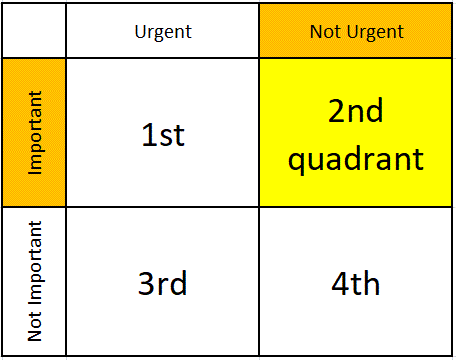ARE YOU struggling with your time management?
I do.
And, in my humble opinion, this is one of the biggest problems bloggers have. That’s why these 11 time management tips for bloggers.
If you knew how to make $1200 a month online, from the comfort of your home, would you do the work?
…Well THIS is your chance
It’s FREE to get started, too (no credit card required). You’ll like that part…
Because the more hours you have, the more (or better) content you can create/publish. Or, if you like, you have more time to build your social presence… or re-design your website.
The problem is, you don’t have more time. You only have 24 hours a day, and that’s it.
So where do you take these extra hours?
I did this research on time management, not only to help you. First and foremost, it was about me. I desperately needed more time. That being said, I am happy to share my findings with you. All that I found and learned.
I divide this blog post into two parts:
- Things I had learned so far?
- Some new ideas I picked up while doing my research on time management?
Things I Had Learned So Far
1. Do one thing at a time
That is the area I have struggled. There are different areas that you have to take care of each day. Creating new content, which includes research, writing, and editing. Also, you need to find and edit images for your content. Then keyword research. Social engagement and building up your social presence. Improving and designing your website. Learning and improving SEO, etc. There are lots of things that you know you need to do.
My problem is that I try to multitask, but I have found that it is very inefficient. Why? Because attempting to do all things at the same time, I cannot focus on any of them. The day passes, and inefficiently used hours bring only extra frustration. Now I have learned to do one thing at a time.
If it is time for research, don’t check your emails—just research. If you work with your emails, work until your inbox has been cleared. This way, I have found, I am way more efficient and can accomplish more.
Not only that, but it also gives me much greater satisfaction. I am happier and more relaxed.
2. DO NOT Edit Your Draft While Writing It.
That has always been a great temptation to me. To write and edit at the same time. However, I have read from professional bloggers that you SHOULD NOT do this. Just let your thoughts flow and put it down as it comes. After you have finished your initial draft, it is time to edit your content.
Because I am not a native English speaker, I am always searching for how to say this correctly. Sometimes I don’t know how to put my thoughts into English. This way, I tend to go back and forth in my texts and regularly edit them. I have learned in a hard way not to do that. It’s more efficient to let my thoughts flow and later deal with wording, grammar, etc.
3. Deal With Disruptions
Did you know that workers in US offices spend 28% of their time switching between tasks due to interruption? Hey, it’s about 1/3 of all their working hours!
And did you know that 40% of the time, if the work is interrupted, they do not resume within 24 hours?
Because of this, you must handle disruptions, or you cannot accomplish anything.
Plus, we can split disruptions into two broad categories: outer disruptions and inner disruptions.
A. Outer Disruptions
Here are disruptions that interrupt your work from the outside. It can be a phone call, a sick child that needs extra care, a sudden problem that you have to deal with fast, etc.
The problem arises, and you have to deal with it. You cannot avoid it. It’s difficult because all these things interrupt your work.
What do you do?
I try to figure out how many external disruptions I can predict per day (or per week). Then, I can roughly estimate how much time I am going to lose because of these interruptions.
Let’s say I want to work on my blog for 5 hours every day. But there is almost always something that causes me to lose about 1 hour. Then I can analyze my day and find that extra hour. That way, I still get my 5 hours.
B. Inner Disruptions
Here are those disruptions that are avoidable yet often as hard to avoid as external disruptions.
IT is a temptation to check for emails, analytics tools for your blog traffic, all kinds of news portals, etc.
… All the notifications from different social networks, telling you to have a new interaction that you want to check out right away. While you cannot avoid outer disruptions, inner disruptions are as devastating as the outer ones. I have found that it is hard to avoid them. You have to build your self-discipline to get rid of them. And it is possible.
What do you do?
When I start to research or write, I close all other windows (email, Facebook, Twitter, etc.) that might disrupt me. Because it is suggested to check Google Analytics only once per week (or even once per month) in the early stages of blogging, I clearly do not need the Analytics app on my smartphone. I have uninstalled it. Before starting to work, I set my mindset and deliberately switch off everything that might become a temptation and disruption. I have to handle the issue, or it overcomes me.
4. DO NOT Run After a Bright Shiny Object. Focus on One Program Only.
 That is another common mistake that newbie bloggers make. They tend to run after each next bright shiny object that they stumble upon.
That is another common mistake that newbie bloggers make. They tend to run after each next bright shiny object that they stumble upon.
Fortunately, I have found a great platform that helped me create my own passive income stream online.
However, when I researched other platforms, I found some great information from other sources. Some of them were awesome. I learned from these sources.
But the problem was, whenever I split my focus on different programs, I did not make progress in any of them. Finally, I learned (in a hard way) that I had to stick with one plan only.
5. Most Important Things First
That is another lesson I have learned in a hard way. Let me ask you, what is the most important thing about blogging? Do you know?
Is it keyword research, quality content, social engagement, SEO, or website design?
Well… All these are important, but without content, everything else is useless. It means you need to create content quality content in the first place.
And this is where I failed so many times. Almost every single day, I did all the other things first… And then (finally) I turned to create content. Guess what happened?
Right, I ran out of time and failed to finish my articles. I had used my prime time for not so important things and did not have enough time nor freshness to create quality content. Often I approached weekends with unfinished blog posts. It was frustration for the whole weekend. I had to change it and make content creation my priority No 1.
Content first, all other things after that.
Do you know what happened after that change? I was able to finish my articles on time, felt relaxed, and satisfied with my work.
6. Don’t Stop When You Are Tired. Stop When You Are Done.
That is a lesson I learned from the online marketing guru Neil Patel. It can be a temptation to continue your unfinished task the next day, but in fact, it is much more satisfying to live with the knowledge that you don’t have unfinished tasks for the following day.
7. Live in the 2nd Quadrant.
 In my humble opinion, this is the single most important thing I have learned about time management.
In my humble opinion, this is the single most important thing I have learned about time management.
Have you ever heard about it? Stephen Covey teaches about it – About living in the 2nd quadrant.
First, you draw a simple chart like that in the image. Here’s what you get:
- 1st quadrant: Things that are important and urgent
- 2nd quadrant: Things that important but not urgent
- 3rd quadrant: Things that are urgent but not important
- 4th quadrant: Things that are neither urgent nor important
Let’s see what they mean to you
3rd and 4th quadrants
As you see, the 3rd and 4th quadrants fall into the “not important” territory. Things and tasks here might be urgent or not urgent, but they are not necessary. So why waste time on them?
If you can move your life out from these 3rd and 4th quadrants, you have already freed a considerable amount of time to deal with important things.
1st quadrant
Everything here is important but also urgent. Because they are also important, you cannot avoid them. But because they are critical, you cannot but do constant firefighting.
And that, of course, builds stress. Urgency builds stress.
2nd quadrant
Therefore… according to Stephen Covey, highly efficient people live in the 2nd quadrant. They deal with only what is essential… And when it’s not yet urgent.
This way, they avoid landing in the first quadrant and can work in a relaxed mode.
8. Take a Rest. Don’t Kill Your Eyes.
 To take a regular rest is advice that you hear from all the professional bloggers. I failed here, doing long hours non-stop. My eyes got tired, and I was not able to work anymore.
To take a regular rest is advice that you hear from all the professional bloggers. I failed here, doing long hours non-stop. My eyes got tired, and I was not able to work anymore.
Finally, I was in a situation where I woke up in the morning, and my mind was ready to take the new day’s challenges; my body was ready too. But my eyes were tired. I was afraid to approach the new day and long hours behind a computer screen.
To blog, you need your eyes. No eyes, no blogging. So it would help if you did something about it. I, for example, cut my working hours into 50-minute stints. After each sting, I took a 10 minutes break. This way, I kept my mind and eyes relaxed.
Ideas That I Picked up While Doing This Research?
Until now, I shared with you what I had already learned and also applied. All these things have helped me to save valuable time and be more efficient. But while my research for this article, I picked some excellent recommendations that I plan to apply. Hope these tips will help you too :)
9. Have an Email-checking Schedule and Don’t Deviate.
It is recommended not to check emails more than twice per day. You might not feel it, but each time you check for emails, you lose time, and your other tasks are interrupted too. So better turn your email notifications off and set fixed times when you check your email.
It is advised to check emails after 11 AM and then after 5 PM. The reason for 11 AM is that morning hours from 9-11 are the prime hours, and by 11 AM, you should have finished at least one important task. It is advised not to check emails on Friday evenings and weekends.
I understand why. It is the best way to destroy your weekend. If you answer a question in more than one paragraph or two, consider writing a blog post instead. This way, you have responded to an email, and you wrote a post too.
10. Stop ‘Back and Forth’ by Offering Solutions
That is excellent advice that I want to implement. If you don’t ask for suggestions but instead offer solutions, you can considerably cut the number of emails in your inbox. So it is advised to ask yourself: “what is my ideal outcome?” or “how can I solve the problem?” Then propose your solutions.
11. Check Google Analytics Once per week or even once per month
Checking analytics tools frequently is a mistake that novice bloggers often make. I did the same. Having no traffic yet, I still checked Google Analytics something like 20 times per day.
Every. Single. Day.
How much time have I wasted because of that? However, pro bloggers and online marketers recommend not to check analytics in the early stages – especially when you have no traffic yet.
Not only you lose valuable time. But also because… As there is a saying: “Paralyzed by analyzing.” What that means is you may lose hope when always watching non-existent traffic numbers. So better focus on creating quality content and check your analytic tool once per week or even once per month.
What if I could show you a real system you can use to put $1,200+ per month into your account, working from the comfort of your home…
…Would you be interested?
If you’re interested don’t hang about. Just click here right now
What About You?
What time-saving tips do you use while working at home? Please do me a favor and drop me a comment below. I appreciate it much :)
Related Articles
- 58 Work Efficiency Quotes – Raise Your Achieving Power Right Now
- Why Is Concentration Important – 60 Famous Motivational Quotes Tell You Why.
- Focus on One Thing at a Time – 34 Inspirational Quotes for Bloggers
- 50 Inspirational Quotes: Time Management Tips and Strategies
- How to Motivate Yourself to Keep Going? 76 Famous Quotes About Perseverance






 ARE YOU looking for ways to create a legit passive income online?
ARE YOU looking for ways to create a legit passive income online?